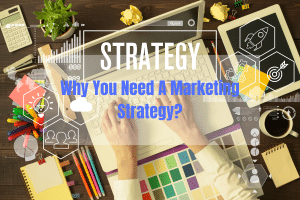Why You Need A Marketing Strategy

In the ever-evolving digital landscape, having a robust marketing strategy is not just beneficial; it’s a necessity for businesses aiming to thrive. At Everyday Media Group, we’ve witnessed firsthand how a well-crafted marketing strategy can transform businesses. Here’s why you need a marketing strategy to navigate the digital space effectively.
Understanding the Importance of a Marketing Strategy
1. Defines Your Brand and Target Audience
A marketing strategy helps you define what your brand stands for and who your target audience is. Without this understanding, your marketing efforts may miss the mark, leading to wasted resources and lost opportunities. By clearly defining your brand identity and understanding your audience, you can create targeted campaigns that resonate with your customers.
2. Guides Resource Allocation
A strategic approach to marketing ensures that your resources – time, money, and manpower – are allocated efficiently. It helps you prioritize marketing channels and activities that yield the best return on investment (ROI). This focused approach maximizes the impact of your marketing budget.
3. Drives Consistency Across Channels
In today’s digital age, your presence spans multiple channels – social media, email, websites, and more. A unified marketing strategy ensures consistency across all these platforms, delivering a cohesive brand message. This consistency builds brand recognition and trust among your audience.
4. Enables Measurement and Improvement
With a strategic plan in place, you can set measurable goals and track your progress against them. This approach allows for continuous improvement, as you can analyze what’s working and what’s not, and adjust your strategy accordingly.
5. Stays Ahead of Competition
A well-devised marketing strategy keeps you one step ahead of your competitors. It helps you identify market trends and adapt quickly, giving you a competitive edge in a crowded marketplace.
Elements of a Successful Marketing Strategy
1. Market Research
Understanding the market is crucial. This involves researching your industry, competitors, and audience. It helps you identify opportunities and threats, shaping your strategy to leverage your unique selling propositions (USPs).
2. Clear Objectives
Set clear, achievable goals for what you want your marketing efforts to accomplish. Whether it’s increasing brand awareness, generating leads, or boosting sales, your objectives should guide your strategy.
3. Target Audience Segmentation
Not all customers are the same. Segment your audience based on demographics, psychographics, and behavior to create targeted and personalized marketing campaigns.
4. Multi-Channel Approach
Utilize a mix of channels – SEO, content marketing, social media, PPC, email marketing, etc. – to reach your audience where they are most active.
5. Content Strategy
Develop a content strategy that aligns with your brand and speaks to your audience. Valuable, relevant content can attract and engage customers, driving conversions.
6. Analytics and Adaptation
Regularly analyze your marketing efforts using tools like Google Analytics, social media insights, etc. Use this data to refine and adapt your strategy for better results.
The Role of Everyday Media Group in Your Marketing Strategy
At Everyday Media Group, we specialize in crafting customized marketing strategies that align with your business goals. Our expertise in digital marketing ensures that your brand stands out.
Unlock Your Business Potential: Discover the Power of a Tailored Marketing Strategy
Ready to elevate your business with a comprehensive marketing strategy? Contact Everyday Media Group by at 817-795-5050. Let’s work together to achieve digital growth and an outstanding customer experience, ultimately increasing your business sales.

